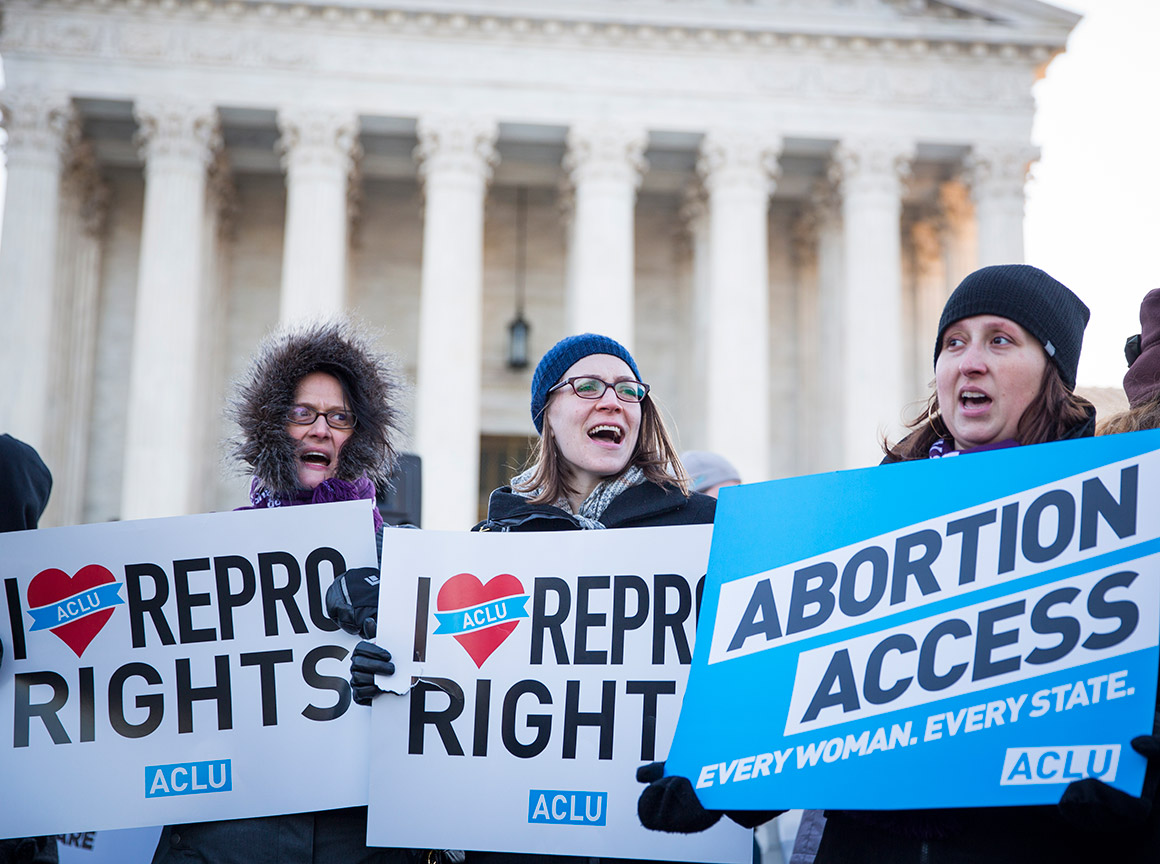
Jenkins v. Almy
What's at Stake
The American Civil Liberties Union (ACLU), the ACLU of Maine, and Planned Parenthood Federation of America filed a lawsuit challenging a Maine law requiring that abortions be performed only by physicians and blocking qualified nurse practitioners and nurse-midwives (also known as advanced practice registered nurses, or APRNs) from providing this care, despite their rigorous post-graduate training and extensive clinical experience. The physician-only law severely restricts patient access to abortion services in Maine, a rural and medically underserved state.
Summary
The federal lawsuit, brought on behalf of two reproductive health care providers, four advanced practice registered nurses, and their patients, challenges the constitutionality of the state’s physician-only abortion restriction. Plaintiffs argue that because the Maine law imposes severe burdens on women seeking abortions and lacks any medical justification, it violates federal constitutional guarantees of privacy and equal protection.
This is the first federal physician-only abortion restriction court challenge since the landmark Supreme Court decision in Whole Woman’s Health v. Hellerstedt, which emphasized that states cannot burden patient access to abortion without proof of a valid medical justification.
Data, including from the Centers for Disease Control and Prevention, show that abortion has over a 99 percent safety record. Peer-reviewed medical literature – including a recent five-year study of more than 11,000 abortion patients published in the American Journal of Public Health – uniformly confirms that APRNs can safely and effectively provide this care early in pregnancy. Citing these strong safety data, medical authorities ranging from the American College of Obstetricians and Gynecologists, to the American Public Health Association, to the World Health Organization, have all concluded that laws prohibiting APRNs from providing abortion services in the first trimester of pregnancy are medically unfounded. In the neighboring states of New Hampshire and Vermont, APRNs have been safely providing abortion care for years.
Currently, APRNs in Maine provide a wide range of health services of equal or greater complexity than early abortion, including miscarriage management – which is identical to the procedure used for an early in-clinic abortion. Abortion is the only health service the state singles out as beyond an APRN’s scope of practice.
This law significantly restricts patient access to abortion services in Maine, and prevents some Maine women from receiving an abortion from their regular primary and gynecological care provider (who, in many cases, is an APRN). Today, while abortion is available via telemedicine in some cases, there are only three publicly accessible health centers in Maine where a woman can have an in-clinic abortion performed. If this medically unjustified restriction is blocked, that number will increase to eighteen locations across this large, rural state.
Plaintiffs are Julie A. Jenkins, Katie Riley, Alison J.G. Bates, Stephanie L. Small, Maine Family Planning, and Planned Parenthood of Northern New England. Plaintiffs seek declaratory relief to hold the law unconstitutional as applied to qualified APRNs who seek to provide first-trimester abortion care, and permanent injunctive relief.
Legal Documents
-
09/20/2017
Jenkins v. Almy - Complaint
Date Filed: 09/20/2017
Affiliate: Maine
Download DocumentPress Releases
ACLU and Planned Parenthood Go On Offense in Maine
